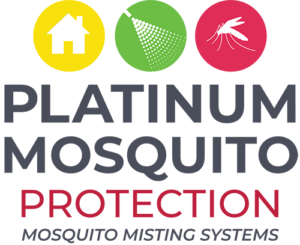
10 areas horse owners need to pay close attention to
Anyone who has spent time around horses knows how special these animals are. Big and strong, noble and beautiful, and they can also be friendly and affectionate. If you have a horse, you, of course, want to keep him or her as healthy as possible, and these tips will help you do it.
1. Yearly exams
You see the doctor every year (or at least you should), and your horse needs to do the same. Even if there doesn’t seem to be any issue or problem, a vet will be able to spot something you won’t. This annual appointment should include any vaccinations your horse needs.
2. Hooves
Because horses stand so often, keeping their hooves in good shape is extremely important. You’ll need to examine them often to look out for things like cracks, thrush, or bruises.
Hooves also need to be trimmed on a regular basis. Consulting with a farrier in your area will help you stay on top of the right hoof care.
3. Teeth
A horse’s teeth never stop growing, and often this leads to uneven wear. During your horse’s yearly exam, your vet should examine the teeth closely and file down the ones that could cause a problem. And you should always be on the lookout for signs something is wrong with your horse’s teeth like they’re not chewing properly.
4. Food
Horses certainly eat a lot, and it’s up to you to supply them with the quality food they need. This includes large amounts of hay or grass and grain. You should also talk to your vet about your horse’s specific nutritional needs to determine if something else should be added to their diet.
5. Exercise
Even if they don’t get ridden anymore, a horse still needs regular exercise. You should take your horse out of the stable or paddock as often as you can. Not only does the walking and/or trotting let a horse release pent-up energy, but it also helps get the blood flowing and stimulates the digestive system. You’ll also find that your horse will be less anxious when he or she gets to move around.
6. Weight
Exercise is a great way to keep your horse from getting overweight, but an underweight horse can be just as problematic. This is why you need to keep a close eye on your horse’s weight. If he or she is getting too thin, you need to talk to your vet to figure out the best solution.
7. Joints
Because horses are so dependent on their legs, good joint health is essential. Nutrition and exercise both play a role in maintaining joints, but you may also want to look into supplements. This could be especially beneficial for older horses, as supplements containing chondroitin sulfate may help slow down arthritis.
8. Parasites
There are numerous internal parasites that can really hurt a horse, including redworms and tapeworms. This is why it is vital to administer a dewormer on a regular basis. You can do this yourself or have your vet do it.
9. Attention
If you have other pets like a dog or cat, you surely give them attention often, and it’s usually pretty easy to figure out when they want it. But this can be more challenging with a horse, in part because he or she doesn’t live with you in the house. This is why you need to make an effort to spend time with your horse and offer love and affection. Doing this will help reduce their stress (and maybe yours, too) and build a bond.
10. Pests
Even when horses mostly live in an enclosed stable or barn, they are never completely protected from things like biting insects. And while mostly just an annoyance, these bugs – such as mosquitos – can be dangerous. They can spread a variety of diseases, including West Nile Virus and eastern equine encephalomyelitis, both of which may be fatal.
One of the best ways to ensure that mosquitos can’t get to your horse is with a misting system, which automatically releases a liquid insecticide that repels those nasty bloodsuckers. To get more information on having a mosquito control system installed in your yard, get in touch with Platinum Mosquito Protection for a free onsite consultation.
